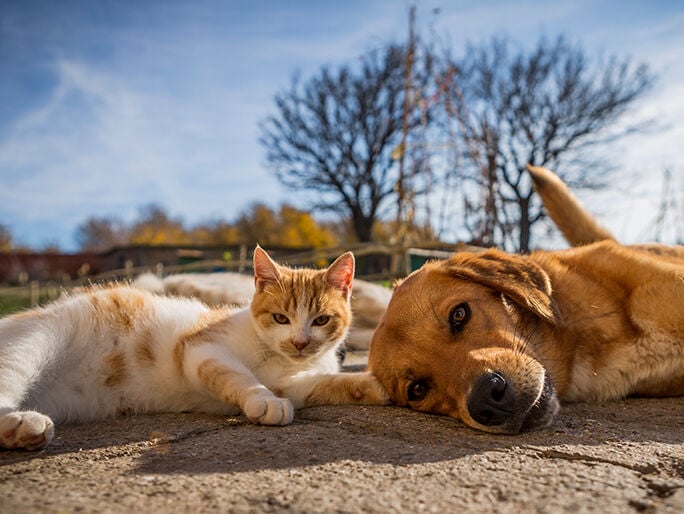All about pet skin and coat care
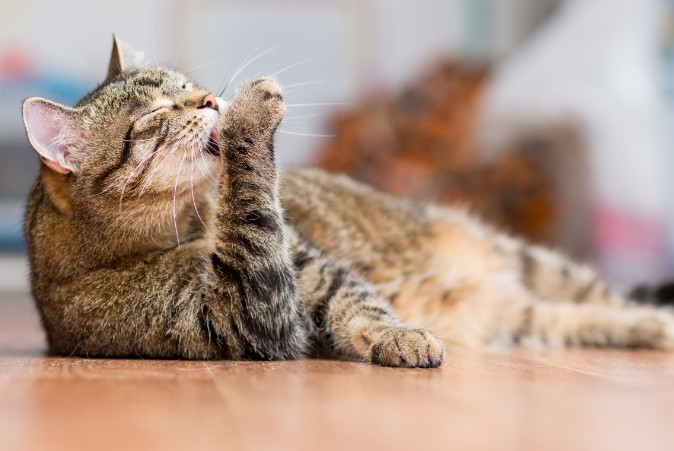
Symptoms of skin and coat problems
Does your pet have unusual skin issues?
Spot the symptoms
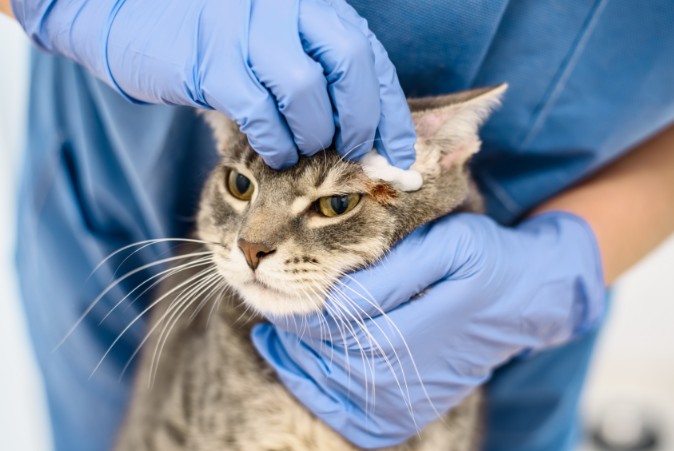
How to treat your pet's skin and coat problems
Sometimes pet symptoms are more than skin deep.

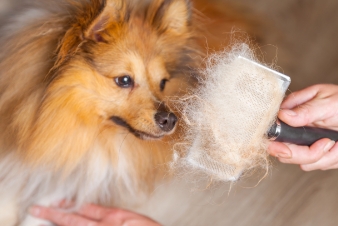
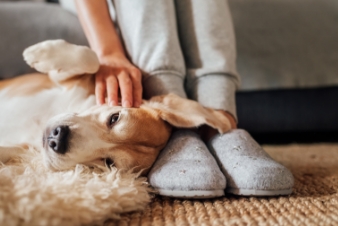
Dealing with your pet's dandruff and dry skin
Tips for flaky, itchy skin on pets. Natural remedies for dandruff
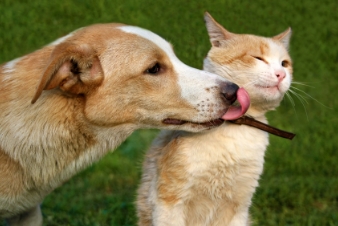
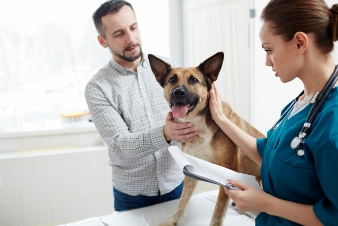
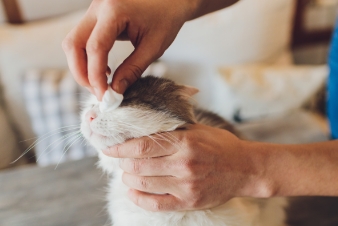
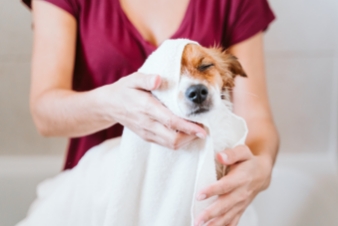
Home skin and coat care
Hands-on tips for pet baths, tackling fleas, and more. Take care of your pet
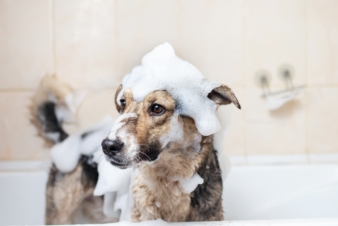
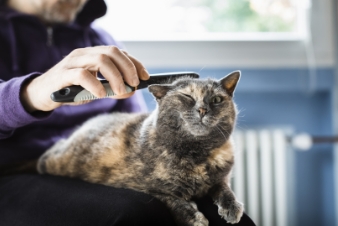
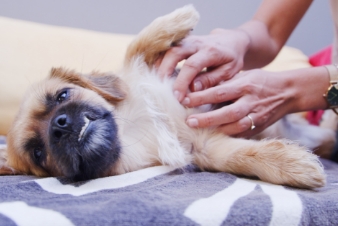
Commonly asked questions about dog and cat skin and coat care
How often do I need to wash my pet?
Every pet is different! Although the general rule for dogs is every two to three months, it can help to check with your vet. We can recommend how often your pet could use a bath and even recommend shampoo types for their skin and coat.
Generally speaking, muddy or dirty pets need a good rinsing (with or without shampoo). After that, how often your pet should be bathed will depend on things like their species, breed, size, hair type, and how tolerant you are of pet smells, hair, and dander.
What can I feed my dog or cat to make their coat shiny?
You may have heard that giving cats tuna water and mixing fish oil or raw eggs into a dog’s meal will give them a shinier coat. While your pet will probably enjoy these treats, they’re messy and won’t always help their coat. Raw eggs in particular carry a health risk from bacteria.
Instead, ask your vet about trusted supplements that have documented results to improve shine. Some common internet wisdom can actually be dangerous, so please ask first. We’re a great resource before adding any supplement to your pet’s diet.
Why are my pet’s nails scaly and thickened?
There are a number of reasons that pet nails start to look strange. Any change in appearance is worth mentioning to your vet.
What can I do in my house to help my pet’s skin allergies?
Keep your pet away from common triggers like freshly cut grass, pine straw, and mulches. Plus, many of the things we do for human allergies can help pets as well.
- Using HEPA air filters to help reduce pollen and dust mites
- Regular vacuuming and dusting
- Washing their bedding with hypoallergenic laundry detergents
- Reducing or eliminating fragrances from spray air fresheners, essential oil diffusers, incense, and cigarette smoke
Is it safe to use essential oils on my dog or cat?
Many essential oils are dangerous for pets (the ones used in commercial products are often incredibly diluted). Your vet is happy to answer questions about any specific product. Bring the package in so we can discuss your goals in using it, plus help identify any hidden dangers in the ingredients.
Why does my hypoallergenic dog or cat have allergies?
Breeds with a “hypoallergenic” coat are reputed to shed less. This means that they spread less dander, which is actually what often triggers pet allergies in human beings
However, being hypoallergenic doesn’t mean that the pet doesn’t have allergies of their own! They are just as likely to suffer from their own allergies as other breeds.
How do you take care of a pet's skin?
Caring for your pet’s skin and coat includes a regular high-quality diet (in the proper serving size), prescription parasite control, baths (as recommended by your vet), and regular coat brushing.

Need advice on flea control? Ping Pet Chat™!
Whether it's 3 a.m. or 3 p.m., connect with a real veterinary professional for immediate petcare advice. It's included in all Optimum Wellness Plans®!
Log in to start chatting
Save at the Banfield Shop
Our mission is to provide high-quality prescription meds for the pet you love. We believe in safe, effective petcare, so we thoroughly assess every item we carry. We offer discounts on eligible products with your pet’s Optimum Wellness Plan. And you can easily schedule deliveries with our super convenient AutoShip program.
 Mites and mange
Mites and mange Podcast - Not Just Fluff
Podcast - Not Just Fluff


